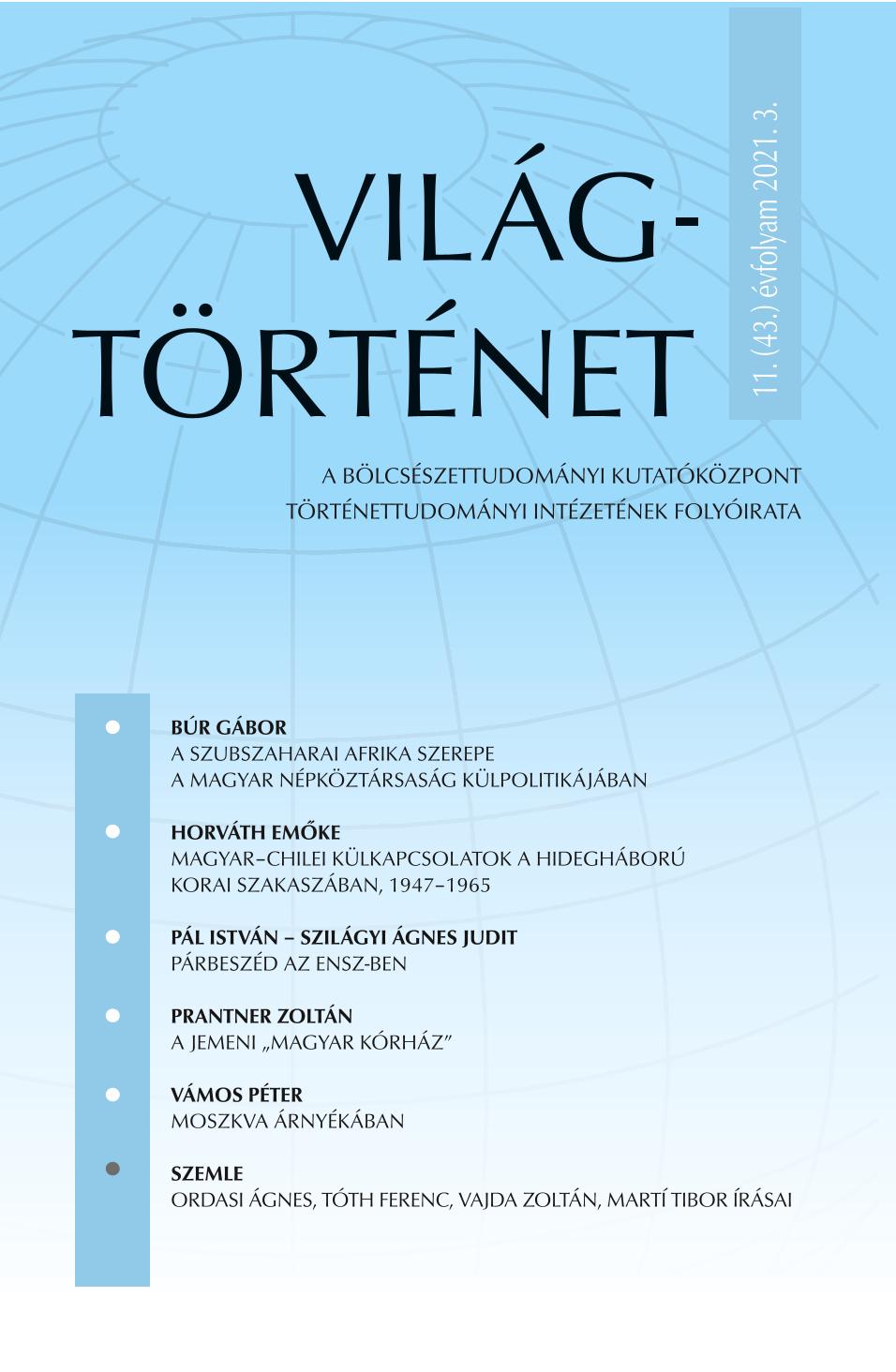A szubszaharai Afrika szerepe a Magyar Népköztársaság külpolitikájában
The Role of Sub-Saharan Africa in the Foreign Policy of the Hungarian People’s Republic
Author(s): Gábor BúrSubject(s): Diplomatic history, Post-War period (1950 - 1989)
Published by: Magyar Tudományos Akadémia Bölcsészettudományi Kutatóközpont Történettudományi Intézet
Summary/Abstract: Hungarian foreign policy has traditionally focused on Europe. With the advent of the Cold War, Hungary became part of the Soviet Union’s sphere of influence, and its foreign policy also had to serve Soviet interests. From 1955, there was a turning point in the foreign policy of the Soviet Union and its allies, the role of Africa increased significantly, the class struggle was to be widened by the struggle of the former colonies against the capitalist world. The entry of independent African countries to the international stage took place when Hungary became diplomatically isolated after 1956. In the spirit of the new Africa policy, Hungarian foreign missions were established on the continent. Relations with sub-Saharan states have only partially alleviated the country’s isolation. By the end of the 1960s, the principle of mutual interests came to the fore. In the 1980s the Hungary began its retreat from the continent.
Journal: Világtörténet
- Issue Year: 2021
- Issue No: 3
- Page Range: 339-351
- Page Count: 13
- Language: Hungarian

